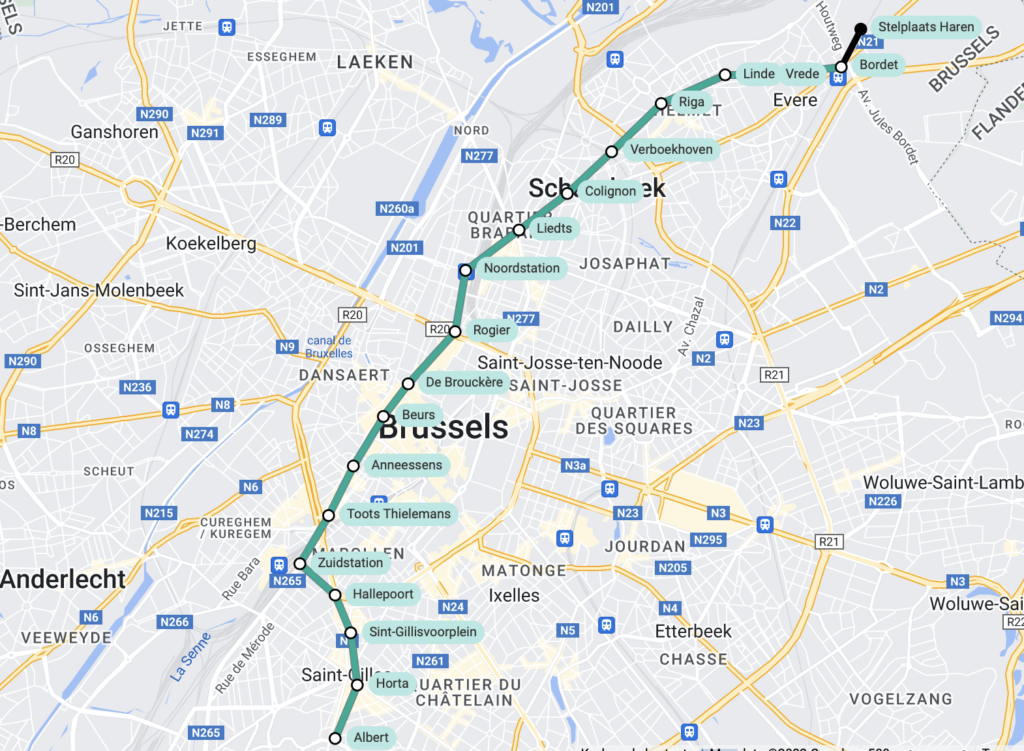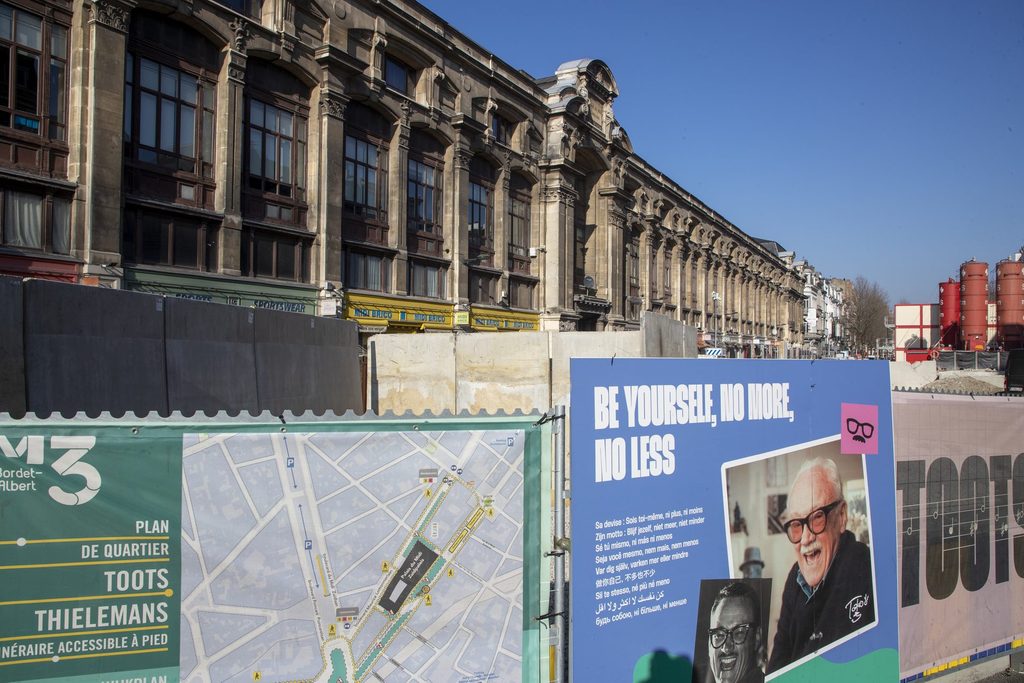CEO of Brussels' public transport network STIB, Brieuc de Meeûs, has expressed doubts over the metro line 3's long-term viability if a route between Gare du Nord and Bordet Station in Evere is not built, Belga News Agency reports.
Talking at a STIB meeting during which he detailed the company's activity report, de Meeûs explained that the metro line had to run until Bordet Station due to its proximity to the Haren metro depot. He stated that it would be "impossible" for the metro line to be operational if it does not include Bordet Station.
However, it is precisely this extension until the metro’s planned terminus that has further delayed works, with civil engineers said to have put up a steep price for the metro link between Gare du Nord and Bordet Station.

A map of the metro's route. Credit: STIB
Brussels' federal investment fund Beliris had announced that construction was halted on the future metro line due to the high price set by engineers. This is despite €156 million of the €174 million initially budgeted having been paid for, according to STIB's CEO.
The Brussels-Capital Region government has since taken over the dossier but has not provided any clarity on its future. Beliris has been instructed to analyse various other offers from engineering companies to continue construction works – a process which could take months, according to de Meeûs.
Related News
- Metro 3: Brussels government stands by project but delays decision
- Partial dismantling of Palais du Midi most likely way to unblock Brussels Metro 3
Moreover, the Brussels Employment Minister Bernard Clerfayt criticised the current price range set by civil engineers to build from Gare du Nord to Bordet Station. In an interview to BX1, he described the offers received by the Brussels government as "outrageous and unacceptable."
Clerfayt also tweeted: "It is unreasonable to pay €4 billion... That sum is too high! But renouncing on this metro seems to me very difficult to do because we need large structural projects so that Brusseleers can get around... The Belgian Government also has to accompany the Brussels-Capital Region's development by following inflation."

